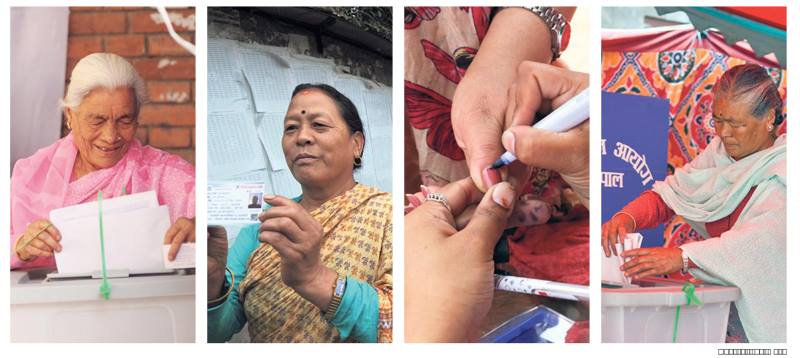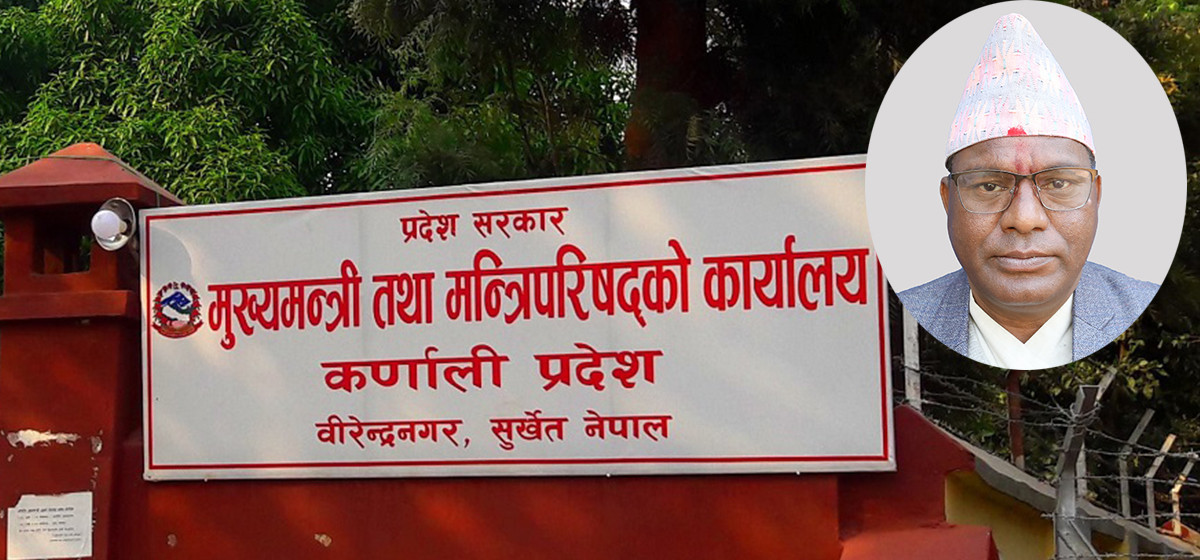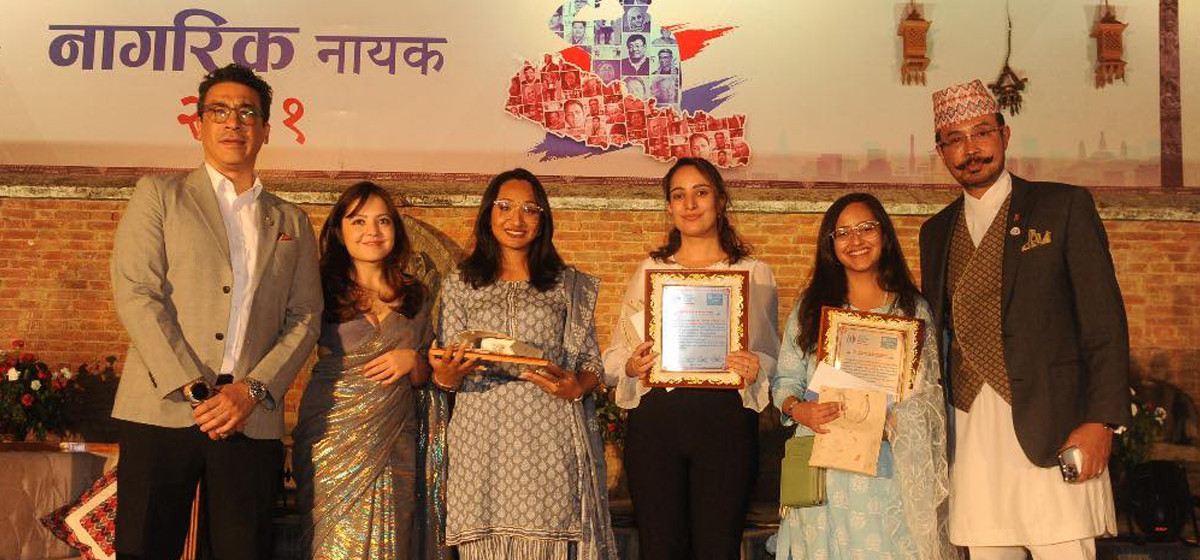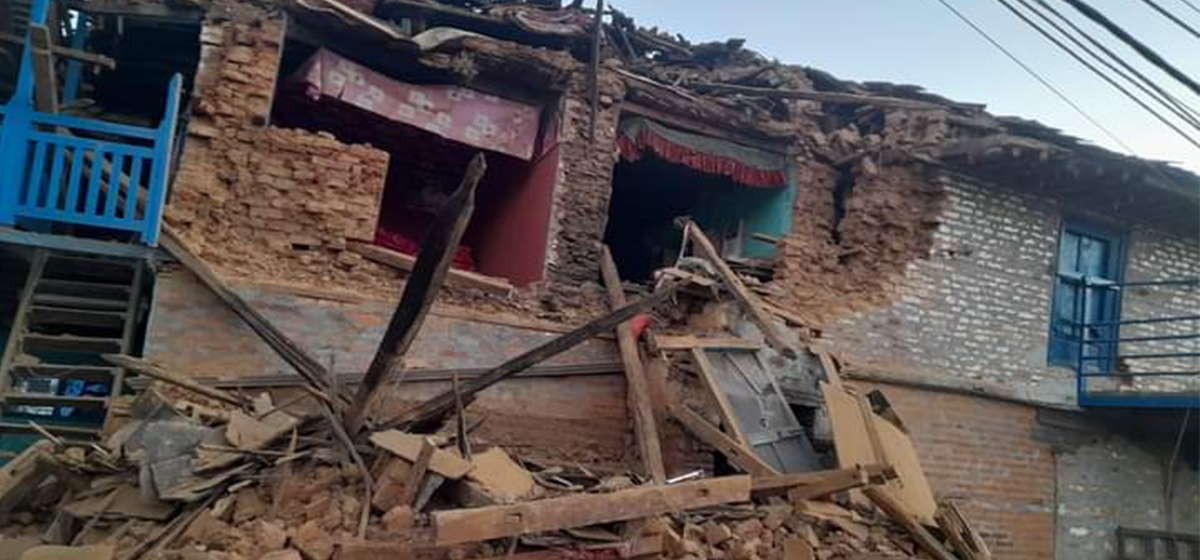
OR

How do you gauge public enthusiasm for local election? In an electoral democracy, one of the best measures is voter turnout. And if that is the basis, the first phase of local election on May 14, with 71 percent voter turnout, was a resounding success. In the first phase, held in 34 districts spread across three federal provinces, nearly 50,000 local-level representatives were elected, nearly 50 percent of them women.
In the second phase, now scheduled for June 28, altogether 43 districts spread over four federal provinces, including all 22 districts in Tarai-Madhes, will be voting, with as many as nine million potential voters (nearly double the number of eligible voters in the first round). Of course, as of this writing, the fate of second phase hangs in balance, as the Rastriya Janata Party Nepal (RJPN), a coalition of six Tarai-based parties, is yet to agree to it.
Whether or not the RJPN comes on board, some analysts believe it will be tough to hold election in the Tarai belt without first amending the constitution, the challenge made all the more difficult as the second phase falls bang in the middle of the monsoon season.
Yet most people Republica and other media outlets have talked to, both up in the hills and down in the Tarai plans, say they are in favor of timely local election, and that it is up to the government to create the right conditions for it. But why are so many people looking forward to voting in local election? And what do they hope from the elected local units?
“To understand the importance of local election, look at my district of Syangja that voted in the first phase,” says Jagannath Lamichhane, who is part of the Independent Citizen Coalition that has been actively campaigning for timely local election. “Among those contesting local election this time were daily-wage earners, laborers and common farmers. Some of them have even won. I’m amazed what running for office has done to their confidence. Now think of them one day leading the country.”
In Lamichhane’s view, the success of the first phase showed that the level of political consciousness among Nepalis, and especially those living in rural areas, has greatly increased. People at the grassroots feel “empowered and aware” and you can no longer “take them for granted.”
Moreover, the better-than-expected performance of new forces like Sajha Party and Bibeksheel Nepali Party suggest people realize that old ways “won’t do”, yet people’s halfhearted endorsement of these new parties also gives the message that they are not yet ready to “make that leap of faith” away from established parties.
Political analyst Hari Sharma likes to see this local election in more of a historical context. “If you look at the two previous local elections, the first in 1992 and the next one in 1997, both witnessed high levels of political confrontation. I remember that in the 1997 election in particular, CPN-UML used to endlessly demonize Girija Prasad Koirala and there were many instances of booth captures and other kinds of electoral violence.”
Yet the most remarkable aspect about both these elections was that the local bodies they elected functioned rather well, Sharma adds. “In fact, it was precisely because the local level units were functioning so well that the Maoists targeted them first when they started their insurgency in 1996.”
Hence elected local governments in Nepal have always functioned well, he reasons. “And this is why there is such public enthusiasm for local election this time as well. Since the new local units have vastly more powers and resources that can be used for local development, they have all the more reason to vote.”
But what about the protesting RJPN and other small Madhesi and Janajati outfits that are threatening to not just boycott local election but to actively disrupt them? Is it right to go to election without getting them on board?
“I don’t think even RJPN believes that there should be no election. They rather want to sort out some constitutional issues before they take part. But you also have to remember that no one election can solve all political problems,” says Sharma.
Sharma thinks all Madhesi forces should take part in election because it also gives them an opportunity to test their legitimacy in voter’s eyes and to adjust their strategies accordingly; it is also an “invaluable opportunity” for them to build their organizations from bottom-up.
After the local election, people will actually have someone they can take their complaints to, which is an “empowering” feeling, adds Sharma.
Yet while most political analysts support timely local election, there are also skeptics of the whole exercise. “This local election is no more than a ritual,” says CK Lal, another political analyst. It will continue to be a ritual “so long as our politics is centered on getting to the government” so as to be able to “drink from the honey pot.”
Lal believes that the kind of grassroots democracy envisioned by the new constitution will materialize only when we have “a strong and functional government at the center”, which is not the case right now.
But is he optimistic that election will take place on the rescheduled date of June 28?
“Optimistically, I would say that the second phase will take place sometime in late-October, around Tihar and Chhatt.”
Why so late? One, it will be “risky” to hold election in Tarai-Madhes without a prior constitutional settlement. Two, June 28 falls in the middle of the rainy season when people are more concerned about “flash floods than voting”. Three, people’s defenses are down in the festive season and thus Kathmandu can “more easily force election” on Tarai-Madhes.
While voices like Lal might be distasteful for many, they cannot be dismissed. This is why it is important that between now and June 23 every effort be made to make the second phase more inclusive.
But based on reports from around the country, people are eager to vote for their local representatives, after 20-long-years. And if certain political and constitutional issues simply can’t be settled through dialogue, it is only right that the sovereign people have the final say.
biswas.baral@gmail.com
You May Like This

One year since local elections, local units still struggling with manpower crunch
RUPANDEHI, Aug 4: One year after the election of local representatives, most of the local units in rural areas are still... Read More...

Local Development Ministry takes proposal of adding 25 local units to Cabinet
KATHMANDU, March 5: Adding 25 local units on what the commission formed to fix the number of local units had... Read More...

Local development minister pledges to resolve problems related to restructuring of local unit
KATHMANDU, Sept 11: Minister for Federal Affairs and Local Development Ministry Hitraj Pandey has expressed his commitment to resolve problems... Read More...





Just In
- Youth found dead in a hotel in Janakpur
- CM Kandel to expand cabinet in Karnali province, Pariyar from Maoist Center to become minister without portfolio
- Storm likely to occur in Terai, weather to remain clear in remaining regions
- Prez Paudel solicits Qatar’s investment in Nepal’s water resources, agriculture and tourism sectors
- Fire destroys 700 hectares forest area in Myagdi
- Three youths awarded 'Creators Champions'
- King of Qatar to hold meeting with PM Dahal, preparations underway to sign six bilateral agreements
- Nepal's Seismic Struggle and Ongoing Recovery Dynamics




_20240423174443.jpg)








Leave A Comment